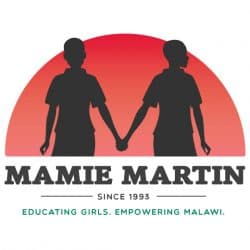This year International Women’s Day is highlighting how gender stereotypes and bias affect learners’ well-being, educational and career pathways, and also how these can be challenged in and through education. Dr Kate Jere, MMF Trustee, writes:

“Gender stereotypes and biases are built in people’s minds in childhood through socialisation in families, communities and schools, and can limit young people’s futures. In schools, they can be reinforced or challenged through curriculum, teaching and learning materials and practices as well as daily interactions with teachers, parents and peers. Beliefs about gender are shaped by norms. Gender norms describe how women and men are expected to behave according to their social context, largely determining their attitudes and behaviour. Teaching and learning materials, especially textbooks, have a powerful role in shaping young people’s world view – and can either perpetuate or disrupt gender stereotypes. In many countries, girls and women remain under-represented in textbooks and gender stereotypes persist. In Malawi, in contrast, some subject textbooks challenge students to identify gender bias in accompanying illustrations and urge them to discuss these stereotypes with their peers. In the 1990s Malawi made an early commitment to a gender-appropriate curriculum in support of girls’ education.
However, In Malawi the socialisation process happening within schools often replicates that of broader society and reproduces powerful gender norms. A ‘hidden curriculum’ of gendered actions and teacher bias that sees girls side-lined in classrooms or expected to carry out ‘women’s work’ such as mopping classrooms or carrying water, or fails to support girls and female teachers harassed by their male peers, reinforces these discriminatory norms and gender stereotypes. Support for gender-sensitive teacher training and increasing the numbers of female teachers in Malawi schools can be important ways of tackling gender stereotyping. Female teachers, especially in remote, rural areas, can act as role models to help inspire young girls (and their families) to continue their education. One challenge in increasing the number of trained female teachers in Malawi is the high dropout rate of secondary school girls – meaning that few leave school with the necessary qualifications to train as teachers, especially those from the poorest or most marginalised groups. The Mamie Martin Fund, through their scholarship programmes and Ready-to-Learn (R2L) funds to assist needy girls, are helping to keep girls in school, pass their examinations and take their place in society.”

